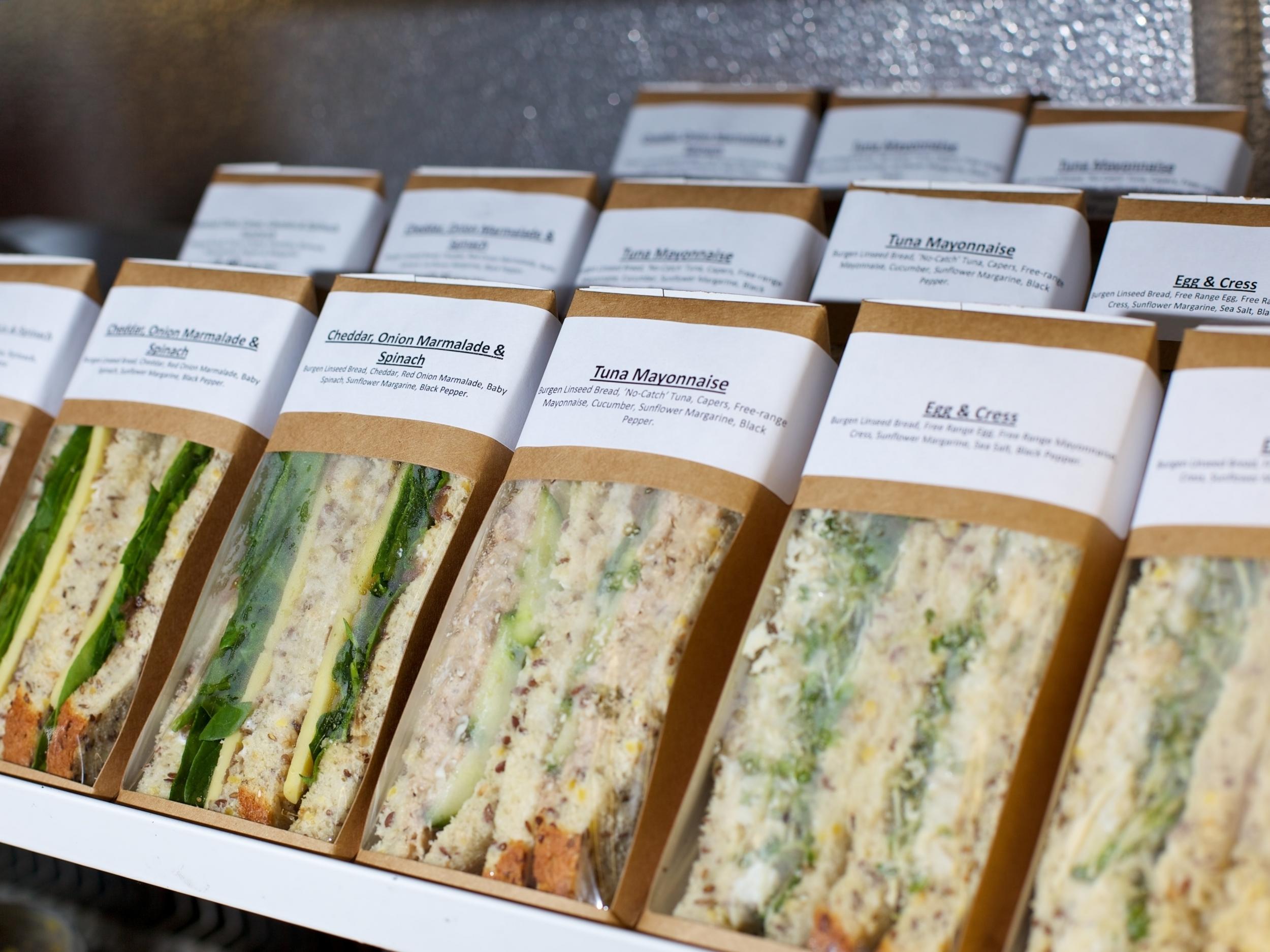Climate change: Sandwiches eaten in UK 'have same environmental impact as eight million cars'
Pre-packaged bacon, sausage and egg sandwich has biggest carbon footprint, according to researchers at University of Manchester

The UK’s annual consumption of sandwiches has a greater impact on the environment than the use of eight million cars, scientists have claimed.
Researchers at the University of Manchester calculated the carbon footprint of 40 different types of sandwiches – both home-made and pre-packaged – taking account how the ingredients were produced, the packaging, as well as food waste discarded at home and elsewhere in the supply chain.
About 11.5 billion sandwiches a year are eaten in the UK, according to the British Sandwich Association (BSA).
The study found ready-made “all-day breakfast” sandwich containing egg, bacon and sausage to have the highest carbon footprint, generating 1,441g of carbon dioxide equivalent (CO2 eq) – the same as driving an average car for 12 miles.
Professor Adisa Azapagic, from the university’s School of Chemical Engineering and Analytical Sciences, said: “Given that sandwiches are a staple of the British diet as well as their significant market share in the food sector, it is important to understand the contribution from this sector to the emissions of greenhouse gases.
“For example, consuming 11.5 billion sandwiches annually in the UK generates, on average, 9.5 million tonnes of CO2 eq, equivalent to the annual use of 8.6 million cars.”
Those containing pork meat, cheese, tomato or prawns were also deemed carbon-intensive by the researchers but home-made favourite ham and cheese was found to have the lowest CO2 eq.
The study, published in the journal Sustainable Production and Consumption, found the estimated impact of ready-made sandwiches ranged from 739g CO2 eq for egg and cress to 1,441g CO eq bacon, sausage and egg.
The carbon footprint of the most popular home-made sandwich, ham and cheese, varied from 399g to 843g CO2 eq depending on the recipe.
Agricultural production and processing of ingredients were found to be the largest contributor to a sandwich’s carbon footprint, accounting for around 37 per cent to 67 per cent of CO2 eq for ready-made sandwiches. Packaging material contributed 8.5 per cent of CO2 eq and transporting and refrigerating adding a further four per cent.
Keeping sandwiches chilled in supermarkets and shops accounts for up to a quarter of their greenhouse gas emissions, researchers said, adding that making them at home using the same ingredients could cut emissions in half.
The team concluded that a combination of changes to the recipes, packaging and waste disposal could halve the carbon footprint of the sandwiches.
The BSA estimates that extending the shelf life of sandwiches could reduce waste by more than 2,000 tonnes a year.
Prof Azapagic said: “We need to change the labelling of food to increase the use-by date as these are usually quite conservative.
“Commercial sandwiches undergo rigorous shelf-life testing and are normally safe for consumption beyond the use-by date stated on the label.”
Responding to the research, Friends of the Earth called for retailers to stock more environmentally friendly lunch options.
Clare Oxborrow, food campaigner for the green lobbying group, said: “The meat and dairy industry is one of the biggest causes of climate change, so cutting back on meat and cheese fillings will be good for the planet – as well as our health.
“But supermarkets need to step up to the plate and make sure their sandwiches aren’t toasting the planet. It’s almost impossible to find a plant-based filling among the meaty and cheesy offerings.”
Join our commenting forum
Join thought-provoking conversations, follow other Independent readers and see their replies
Comments
Bookmark popover
Removed from bookmarks